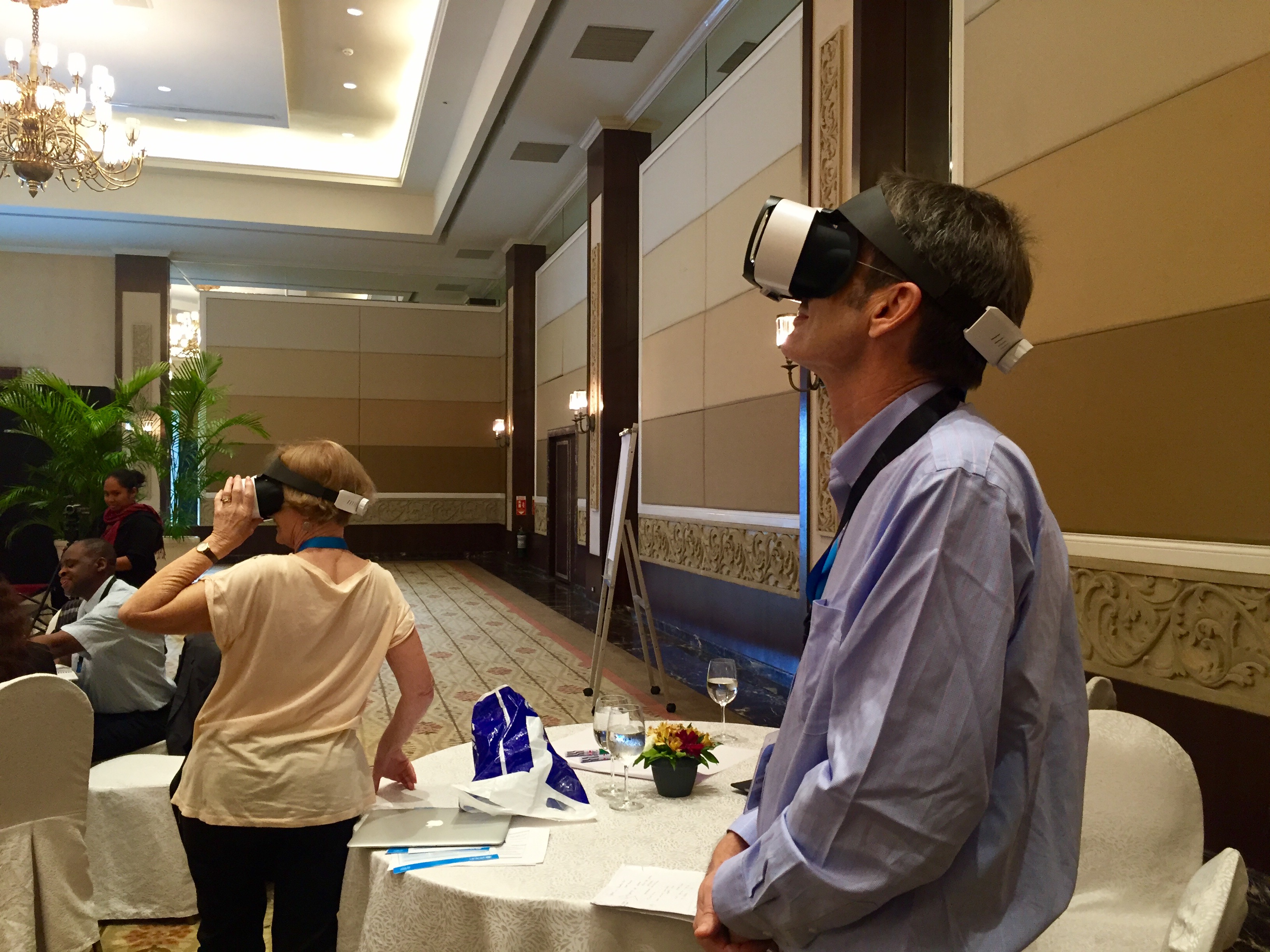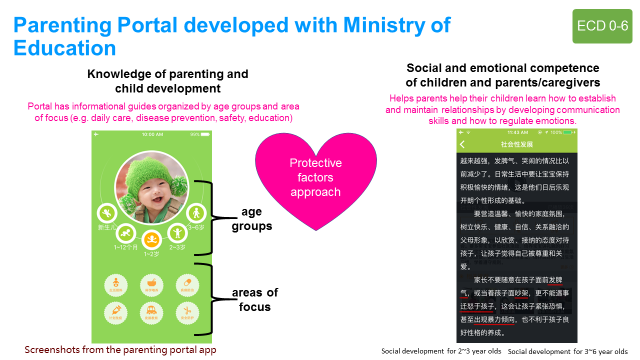By Lisa Qin, Education and Child Development
Why and how does UNICEF use technology for parenting support in China? UNICEF China presented on this question and its work as part of a regional workshop in Manila, Philippines for parenting support interventions alongside 75 colleagues, partners and international experts from 11 Asian and Pacific country offices. [1]
We learnt about evidence for parenting as a key strategy in preventing violence, parenting programmes across a child's life cycle from the moment of birth until 18 years old, those for lifelong health, assessing an interventions effectiveness and international experiences developingfamily/parenting support policies including engaging men in non-violent, positive parenting.
UNICEF China introduced our work on a Child Protection pilot program for a community-based child protection mechanism in rural communities, Education's technology-based parenting support in and demonstrated our virtual reality headsets.
 ©UNICEF/China ©UNICEF/China
At the parenting support intervention workshop, participants try UNICEF China's virtual reality devices which show the barefoot social worker and ECD center pilots (L-R: Glen Palmer, International ECD Expert and Stephen Blight, UNICEF Regional Child Protection Advisor) |
Technology-based parenting support within UNICEF China's education programme is currently integrated within its early childhood development pilots through content called a Parenting Portal. The Portal, with 269 ECD messages and 200 micro-videos on critical issues for 0-6 year old children, begun in 2011 and was developed with Ministry of Education, the National Center for Educational Technology and experts. It has been transformed into four mediums: a website with 400,000 views; a stand-alone kiosk in 140 kindergartens and community-based centers; a mobile application with 100,000 downloads; and through WeChat, China's most popular messaging app which begun in 2015.
So why use technology-based parenting support to deliver content? Technology delivers a pocket guide format for access to personalized information and aligns to the huge uptake in internet and mobile devices for the country's netizens - 674 million and growing (that's 20% of the world's internet users). Harnessing technology is also a way for participants of face-to-face training to be directed to ‘information on demand' that has the capacity for tailored mass personalization.
 ©UNICEF/China From a protective factors approach, the Parenting Portal focuses on improving the parents' knowledge of child development and the social and emotional competence of children, parents and caregivers. ©UNICEF/China From a protective factors approach, the Parenting Portal focuses on improving the parents' knowledge of child development and the social and emotional competence of children, parents and caregivers. |
Parents have probably suffered from a form of app-fatigue or information overload with over 350,000 apps, and so many different forms of parenting support information. Especially in a crowded market with information saturation, content created through UNICEF partnering with government can bring credibility for parents concerned with the accuracy of what they read. For example, the WeChat parenting portal is tailored towards migrant worker parents through partnering with The Center for Child Rights and Corporate Social Responsibility who work directly in China's manufacturing sector.
Technology-based support for interventions should be more than a stand-alone app, and provide targeted and complementary support to integrate with existing pilot programs. Technology's role is most useful is as communication channel with quality content being key. Follow up costs with technology can be expensive, so we need to consider maintenance and operating system upgrades across different mediums.
These key takeaways will feed into parenting portal updates and for creating an online platform for parents' social and emotional learning currently is in the pipeline for our Child Friendly Schools pilot programme.
For monitoring and evaluation, technology and apps have endless opportunities to collect large amounts of data, such as the number of hits or when someone uses it through the day or week so it can be easier to track and make improvements with pre-planning. User uptake and loyalty are important and can be the hardest to develop so promoting the parenting portal during teacher training has led to increased uptake and we can be more intentional for new iterations.
Responsive parenting to foster holistic child development and prevent child maltreatment is a universal issue, and learning and sharing from participants over three days in Manila will help inform all our work for children. UNICEF China will continue with all our colleagues and partners to develop parenting support interventions, exploring innovative practices for children's better quality of life and brighter futures.
[1]Parenting support interventions are programmes that aim to strengthen positive, responsive and stimulating parenting practices through collaborative learning in a supportive environment. Effectiveness of parenting programmes in reducing violence and in promoting responsive parenting has been demonstrated in high income contexts with emerging evidence from lower and middle income countries; UNICEF and the Violence Prevention Alliance have included parenting support interventions as a key strategy for ending violence against children.































